Tag : literature
January 25, 2021 by admin
Honey on the Page
Yiddish children’s literature, created all over the world, largely during the period between the two world wars, includes writers who considered themselves secularists, and nevertheless shared stories about the magical aspects of keeping the Sabbath; as socialists they wanted to encourage workers not to let capitalists own them seven days a week. On the occasion of the publication of Honey on the Page: A Treasury of Yiddish Children’s Literature, editor and translator Miriam Udel, was interviewed by Laura Shaw-Frank, on the feminist underpinnings of her research on Yiddish children’s literature. Many female writers still did not have “a room of their own,” so there is a limit to the number of female authors she was able to include. But she highlights some iconic female protagonists such as Dovid Rodin’s Shprintse and Kadya Molodovsky’s Olka. This webinar was co-sponsored by JOFA, Maharat and Svivah.
facebook.com/watch/?v=1734182590079696
- No Comments
July 1, 2014 by Yona Zeldis McDonough
Golden Words: Q&A With Author, Editor, Activist Nora Gold
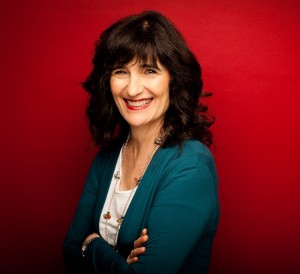
Nora Gold (source: NoraGold.com)
Nora Gold’s recently published Fields of Exile, a pathbreaking novel about anti-Israelism in academe, was picked by The Forward as one of “The 5 Jewish Books to Read in 2014,” and has received enthusiastic praise from many quarters.
But this is not the first time Gold has received acclaim for her work; Marrow and Other Stories won a Canadian Jewish Book Award, and was praised by Alice Munro. And Gold’s story, Yosepha, appeared in the spring 1985 issue of Lilith.
Gold is also the creator and editor of the online literary journal Jewish Fiction.net, a blogger for “The Jewish Thinker” at Haaretz, and Writer in Residence and an Associate Scholar at the Centre for Women’s Studies in Education at OISE/University of Toronto. She and Lilith’s fiction editor Yona Zeldis McDonough discussed the role ideas play in the creation of a novel, the meaning Zionism continues to have in the Diaspora and the siren song of the short story.
June 25, 2014 by Esther Amini
When Her Persian Father Wouldn’t Let Her Go to College…
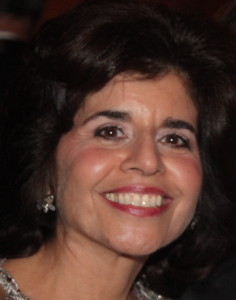
Esther Amini (courtesy author)
Rabbi Sholem Cohen, the new Sephardi Chief Rabbi of Israel and successor to Rabbi Ovadia Yosef, has just released his first ruling.
The verdict? “Women’s participation in academic pursuits, including in haredi colleges, is a violation of Jewish law,” Cohen wrote. Apparently, even in ultra-Orthodox educational institutions, women put their “pure” mindset at risk by coming into contact with potentially college-educated instructors.
Esther Amini, a writer and psychotherapist, shared her own experience being discouraged from higher education as a young woman in a piece that will be featured in Lilith’s Summer issue. Amini’s courageous pursuit of an education has paid off in spades, as her writing has been featured in publications from Elle to Tablet Magazine.
Under the Sheets
Every night, after house patrol, Pop marched into my room shouting, “Enough books!” and flicked off my lights before slamming the door. He thought that by turning off lights he was turning me off, ridding me of curiosity and saving me from what would become a home-wrecking narcotic: books.
But by age 13, I was already a pro at reading with my head tucked under the sheets. I’d reach for my flashlight, dive head-first under the covers, and read voraciously. Beneath layers of bedding, with labored breathing, I silently turned pages. My squinting eyes, acclimating to the circle of light on each page, devoured the words. Eventually I’d re-surface for a deep inhale and then slide back down.
- 10 Comments
April 7, 2014 by Yona Zeldis McDonough
Jewish Woman, Muslim Man, and What This Unlikely Literary Pairing Produced
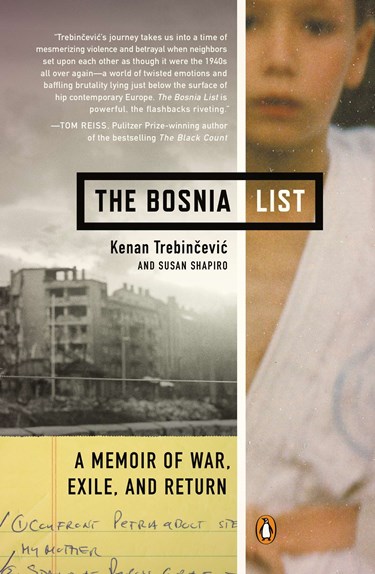 A Jewish woman collaborates on a book with a Muslim man? Sounds like the start of a joke—except that it’s anything but. When writer and teacher Susan Shapiro was forced to undergo physical therapy for an injured back, she met a young therapist whose personal story soon had her riveted. She drew it out of him, page by page, and the result, The Bosnia List, just published in March by Penguin. Fiction Editor Yona Zeldis McDonough talks to Shapiro about this highly unlikely pairing and the unexpected insights it yielded.
A Jewish woman collaborates on a book with a Muslim man? Sounds like the start of a joke—except that it’s anything but. When writer and teacher Susan Shapiro was forced to undergo physical therapy for an injured back, she met a young therapist whose personal story soon had her riveted. She drew it out of him, page by page, and the result, The Bosnia List, just published in March by Penguin. Fiction Editor Yona Zeldis McDonough talks to Shapiro about this highly unlikely pairing and the unexpected insights it yielded.
YZM: What initially drew you toward Kenan Trebincevic?
SS: I tore two ligaments in my lower back and Kenan was my physical therapist.
One day, he told me to do leg lifts and went to help another patient. As a journalism teacher I always carry a stack of student papers. The exercises were boring so I took out papers to grade. Kenan got annoyed I wasn’t paying attention to the workout. He looked over at the essays and asked sarcastically “What I did on my summer vacation?” in his Eastern European accent. I said, “Actually, my first assignment is to write three pages on your most humiliating secret.”
He laughed and said, “You Americans. Why would anyone do that?”
I said, “It’s healing.” And I added also that my students want to get published in the New York Times and write books. That night he emailed to see if I was okay, which I thought was very menschy. I sent him a poignant piece my student Danielle Gelfand published in the New York Times about how she and her mother, a Holocaust survivor, eat bacon cheeseburgers on Yom Kippur, as a way to cope with her father’s suicide on that day 17 years earlier. I think that piece inspired Kenan.
- No Comments
March 20, 2014 by Chanel Dubofsky
“I Wanted to Be Pat Boone’s Daughter.”
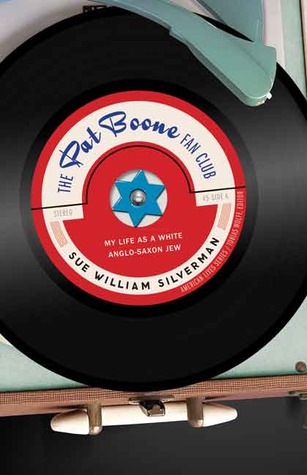
When Sue William Silverman and I met to discuss her new memoir, The Pat Boone Fan Club: My Life as a White Anglo Saxon Jew, she played “Exodus” for me on her iPhone. (Boone actually wrote the lyrics for the theme song for the movie Exodus, which lyrics he titled “This Land Is Mine.”)
Me: It sounds really…generic.
Sue William Silverman: Everything about Pat Boone is generic. That’s why I loved him, I could make him into anyone I wanted him to be.
Silverman’s memoir is a story of among other things, evolving identity, of wishing your reality wasn’t yours in the most profound way, of doing whatever it takes to escape it and become yourself.
Lilith: The Pat Boone Fan Club opens with a quote from James Baldwin:
“Identity would seem to be the garment with which one covers the nakedness of the self: in which case, it is best that the garment be loose, a little like the robes of the desert, through which one’s nakedness can always be felt, and, sometimes, discerned. This trust in one’s nakedness is all that gives one the power to change one’s robes.”
Can you comment on why you include this?
Sue Silverman: To me, this quote conveys the complexity of identity, which is what I explore in the book. How, when, and why do we change our identity? What parts of ourselves do we reveal?
For me, growing up in a troubled, incestuous family, I lost a sense of my true self, including a sense of my Judaism. Throughout the book, I tumble through various identities: I tried to pass as Christian; I tried being a kibbutznik, picking apricots in Israel; as a hippie, I tramped cross-country in a VW camper; I vacationed in Yugoslavia with a boyfriend who, it turned out, was anti-Semitic; I married – and divorced – two Christian men.
More than anything – and this is the heart of the book – I wanted to be Pat Boone’s daughter. I wanted that very Christian, squeaky-clean 1960s pop star to adopt me. Why? Because my father sexually molested me growing up.
But why Pat Boone? For hours, as a young girl, I gazed at photos of him and his beaming, golden family in fan magazines. If Pat Boone could raise four daughters, couldn’t he raise me, too? In my child-mind, he was the ideal of what a father should be: someone nurturing, caring, safe.
So the identity I most wanted was that of Pat Boone’s fifth daughter!
- 2 Comments
February 4, 2014 by Yona Zeldis McDonough
What DID Nora know?
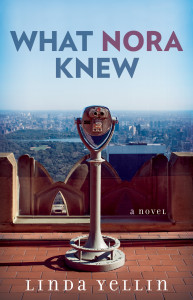 Linda Yellin is a funny lady. To wit, her new novel, What Nora Knew,” is crammed with snappy one-liners, snarky apercus and a whole lot of good-humored sass. Whether intentionally or not, Yellin has joined ranks with Ephron in turning out a particular kind of humor, one that is specific—if not unique to—Jewish women. She talks to Lilith Fiction Editor Yona Zeldis McDonough about concealed vibrators, the enduring appeal of rom-coms and the nuances that separate the funny girls from the boys:
Linda Yellin is a funny lady. To wit, her new novel, What Nora Knew,” is crammed with snappy one-liners, snarky apercus and a whole lot of good-humored sass. Whether intentionally or not, Yellin has joined ranks with Ephron in turning out a particular kind of humor, one that is specific—if not unique to—Jewish women. She talks to Lilith Fiction Editor Yona Zeldis McDonough about concealed vibrators, the enduring appeal of rom-coms and the nuances that separate the funny girls from the boys:
Yona Zeldis McDonough: You have a background in advertising; how did you transition to writing fiction?
Linda Yellin: I’m sure there are people who’d say advertising is fiction, but that theory aside, my first novel was ninety percent true. So it was only sorta-fiction. I changed all the main players’ names to keep my relatives from getting mad at me. I didn’t want to get un-invited to the family seders.
The next book, The Last Blind Date, was a memoir, so that was technically non-fiction. But I guess none of my cousins got offended because they’re still speaking to me. What Nora Knew is a novel, although Nora Ephron and her movies and insights are real, so I guess I’m still transitioning into writing fiction.
YZM: Your protagonist, journalist Molly Hallberg, has had some pretty entertaining assignments: learning to dance like a Rockette and sneaking vibrators through security scanners. Any of these drawn from real life experiences?
LY: Absolutely. Molly and I have a lot in common. Most of her assignments are ones I’ve done for MORE magazine. Including one where she spends a day wearing kegel underpants. (One-inch silicone plug in the crotch…you can figure out the rest.)
The vibrators was my favorite assignment. There were three of them – all “disguised” like cosmetics: a lipstick; a mascara; and a blusher brush. I stood in line at the Family Court building in New York thinking: it’ll be really great for the story if I get busted for doing this. (Security guard: “Would the owner of the vibrating mascara please step out of line?”) But all along I was praying that I’d pass through. When it got down to story-versus-mortification, I was more afraid of mortification. Molly Hallberg’s braver than me.
YZM: What Nora Knew is an homage not only to Nora Ephron but to the whole Hollywood tradition of romantic movies. Can you say more about that?
LY: There are certain constructs and expectations in romantic movies. We probably know from the get-go who the heroine will end up with, but if you care about the characters, you want to travel along with them and root for their success. Whether it’s Meg Ryan and Tom Hanks, or Meg Ryan and Billy Crystal, or Jennifer Lawrence and Bradley Cooper – romantic comedies are journeys with happy endings, and who doesn’t love that? And who doesn’t love Nora Ephron’s romantic comedies?
YZM: Do you consider Ephron a quintessentially Jewish humorist and if so, why?
LY: Her humor is quintessentially relatable, so it also covers Christianity, Buddhism, Atheism; you name it. But there is a wry, sardonic point-of-view in all of Nora Ephron’s writing that certainly feels Jewish. An oy-vey-can-you-believe-this quality. It’s the same one I grew up with while my aunts and uncles and cousins were debating life over corned beef and smoked fish.
YZM: How would you describe the differences between male and female humorists?
LY: Subject matter. Our humor leans toward relationships and emotion. Guys tend to vamp more on guy-stuff. Sex, sports, things that explode. Don’t hold me to this opinion, though. For sure, there’s a PhD candidate out there whose doctoral thesis would totally disagree.
YZM: What, in the end, did Nora know?
LY: Plenty. That’s why it was so much fun to write this novel.
- No Comments
 Please wait...
Please wait...